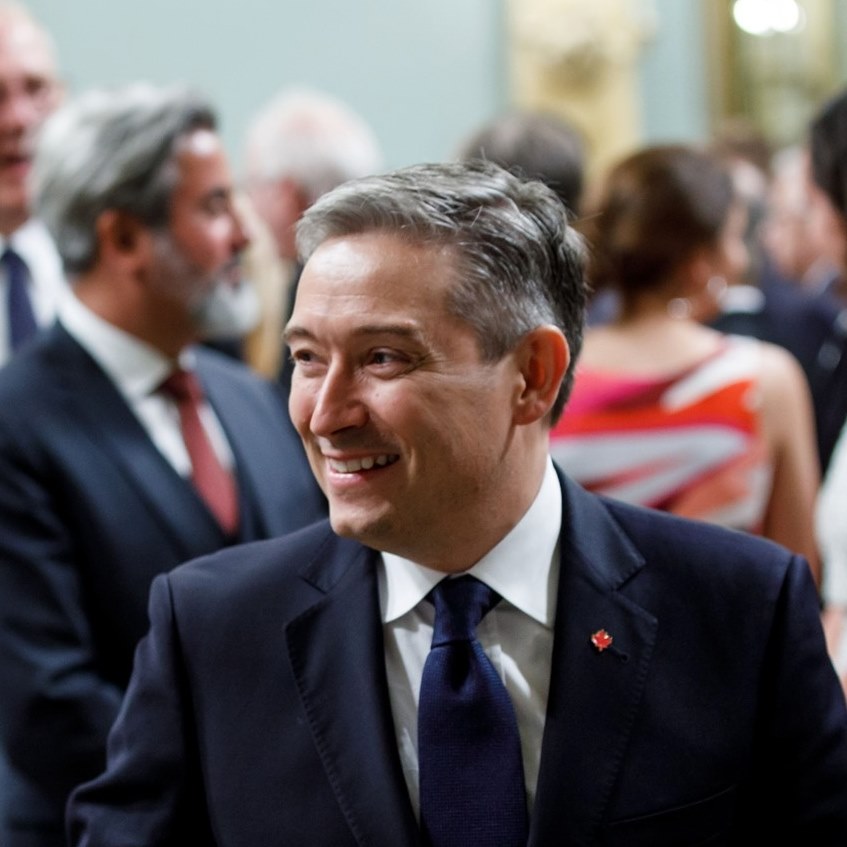
The Honourable François-Philippe Champagne, Minister of Foreign Affairs, co-hosted today the second Global Conference for Media Freedom with Kabo Neale Sechele Morwaeng, Botswana’s Minister for Presidential Affairs, Governance and Public Administration.
Around the globe, media freedom is under attack. Disinformation campaigns, foreign interference in democratic processes, threats to journalists and the misuse of COVID-19 emergency measures are eroding media freedom.
As part of the conference, Prime Minister Justin Trudeau addressed participants, underlined key issues surrounding media freedom and highlighted how free media is a cornerstone of our democracy.
Minister Champagne and the Honourable Karina Gould, Minister of International Development, announced an additional $1 million in funding for the UNESCO Global Media Defence Fund, which was established by Canada and the United Kingdom to help enhance media access to legal assistance. They also announced $1.5 million for the Lifeline Project to Tackle the COVID-19 Infodemic, a BBC Media Action project working with journalists in Afghanistan, Bangladesh, Ethiopia and Indonesia to create clear, fact-based COVID-19 content.
Over the course of this successful conference, three new countries—Australia, Belize and Botswana—joined the 37 members of the Media Freedom Coalition for its first ministerial meeting. The coalition issued a joint ministerial communiqué that reiterates its commitment to the Global Pledge on Media Freedom and urges governments to protect the independence and safety of media professionals.
In addition, Michelle Bachelet, United Nations High Commissioner for Human Rights, delivered the keynote address, and the High-Level Panel of Legal Experts on Media Freedom, chaired by David Neuberger and deputy-chaired by Amal Clooney, presented evidence-informed advice to governments on how best to counter threats to media freedom.
The conference closed with the presentation of the first Canada-United Kingdom Global Award for Media Freedom to the Belarusian Association of Journalists in recognition of their tireless efforts to defend the right of journalists to conduct their essential work.
Canada and Botswana are pleased to announce that Estonia will host the 2021 Global Conference for Media Freedom.
Quotes
“We live in a time of unprecedented challenges. Journalists play a critical role to protect and promote human rights, democracy and the freedom of the media. Too often, they put themselves at risk to protect these essential principles. We must join forces and oppose those who seek to silence the voices of journalists and who choose to repress media freedom.”
– François-Philippe Champagne, Minister of Foreign Affairs
“Viruses don’t know borders, and our ability to respond to COVID-19 also depends on access to reliable information abroad. This is why we are supporting the work of BBC Media Action as it creates reliable, fact-based media content that provides life-saving information to communities in need and why we are supporting local media in Afghanistan, Bangladesh, Ethiopia and Indonesia to do the same.”
– Karina Gould, Minister of International Development
Quick facts
- Canada and the United Kingdom co-hosted the first Global Conference for Media Freedom in London, United Kingdom, in July 2019.
- Since 2015, Canada has invested $22 million in programs supporting the media and the free flow of information.
- In 2019, Canada provided an initial $1 million to the new Global Media Defence Fund housed at UNESCO.